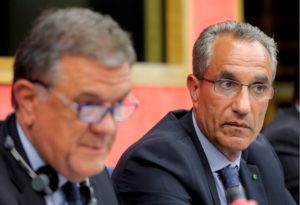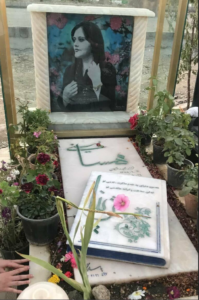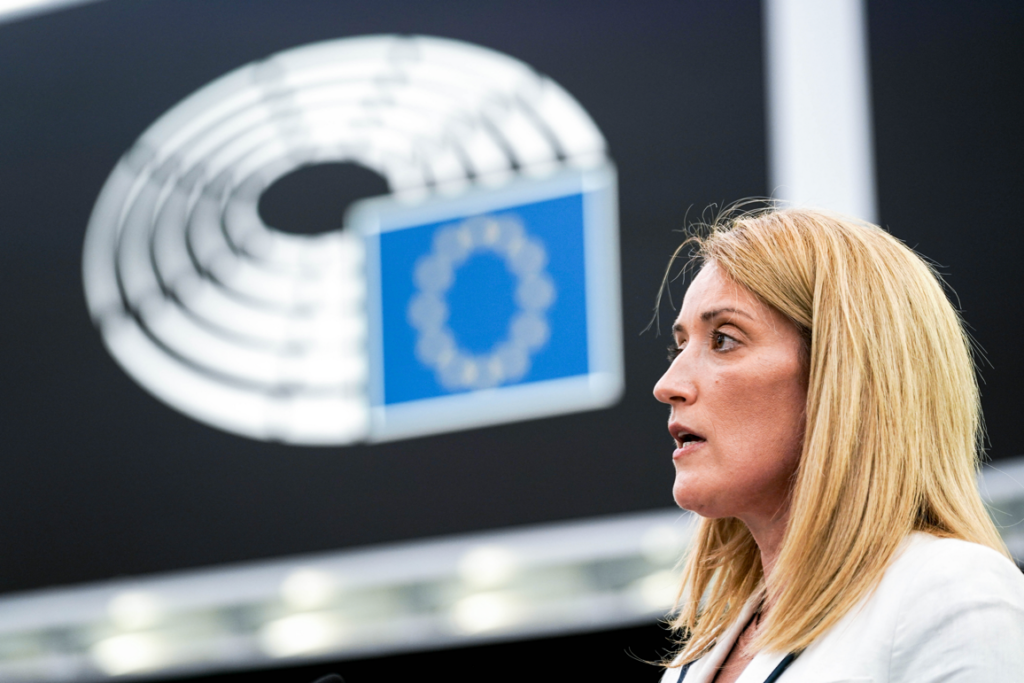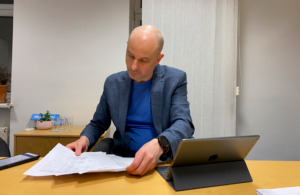Bob Hope and Bing Crosby sang about being “off on the road to Morocco”, but we must remember that roads can go in a variety of directions. It seems as if money passed along the road from Morocco into the pockets of certain members of the European Parliament and votes have subsequently gone Morocco’s way. Why? Well, it seems that certain MEPs were found to have accepted money in return for “promoting the Kingdom’s interests”. That means voting in favour of things Rabat thinks would be helpful to the Kingdom and voting against those things it doesn’t like. It’s nothing new; this is politics and there is no need for a James Bond-type figure, merely an accountant. As The Conversation puts it in their on-line entry: “Corruption has existed since the Egyptian dynasty and still persists in almost every country around the globe.” People have been corrupt since at least the very first people evolved. Their ape-like ancestors may have been willing to trade influence (or violence) for a bunch of bananas, too. And just in case you think it’s a new idea, try this for size, also from The Conversation: “Corruption is as old as human history. The First Dynasty (3100–2700 BC) of ancient Egypt noted corruption in its judiciary.” Who would have thought it, eh? Corrupt and corruptible judges and lawyers? Whatever next? Some things, it seems, never change.

In the Morocco corruption saga, the great motivation is cash, as it so often is. It’s amazing what some people (dare I say most people?) will do for a little pecuniary advantage. You want a couple or more politicians to vote in a particular way you simply tell them which way to vote and slip them a little “persuasion” in the form of non-consecutively numbered bank notes. That, very often, is all you need to do, although if it’s a big favour you’re asking, it may involve something more impressive, like a yachting holiday somewhere warm, as well. Money was certainly the motivation in this case. The result, of course, can be made to look less criminal or suspicious with a clever bit of spin. Julius Caesar used his propaganda machine to make himself look good and it worked for some two thousand years. As the saying goes, there’s nothing new under the sun, and that includes political corruption (and killing for cash). As a result, the vast wealth Caesar amassed in his conquering of Gaul and most of Britain was obtained through trickery. Amazingly, the people back in Rome would even believe his claim that his massacre of civilians from the Germanic nations of the Usipetes and Tencteri was really an example of mass suicide, not brutal military defeat and the subsequent killing of prisoners (which it undoubtedly was). Caesar claimed they had simply lost all hope of getting away, so chose to end it all. He, on the other hand, had gained the hope of vast wealth. It makes Cassius look like a good man doing a good job, rather than a man with “a lean and hungry look”, who “thinks too much”, although in Caesar’s case he was undoubtedly dangerous.

The latest scandal has been labelled “Qatargate” by the media. It’s always “something gate” these days, ever since the Watergate scandal. In this case, arrest warrants are being issued and then rescinded a week or so later, which makes no sense. Among those targeted by law enforcement services is Pier Antonio Panzeri, who was expecting to see in the 2022-23 New Year in a very posh (and expensive) hotel in Marrakesh, provided for himself, his wife and their daughter, free of charge. Instead, having been identified as central to the corruption scandal, he and his wife and daughter spent New Year under arrest. It cannot have come as much of a surprise, given that Belgian police had raided the European Parliament and seized more than €1.5-million in cash at the houses of Panzeri and two other suspects. Police suspect that Qatar used Panzeri’s corrupt network to buff up its image ahead of the World Cup, although there were other potential motives, too. At the age of 67, Panzeri is a well-practised recipient of corrupt funds, having received bribes and gifts from Moroccan officials for more than a decade in return for influencing EU policy.
Panzeri failed to get re-elected in 2019, but was known for speaking out on human rights issues. According to transcripts of conversations that officials had wire-tapped, the Panzeri family had discussed gifts from Morocco’s ambassador to Poland, Abdrerrahim Atmoun, and were also looking forward to a week’s holiday (including New Year, of course) at the luxurious Marrakesh resort of Mamounia, all paid for by Rabat. Panzeri had a long record of voting in ways that favoured Morocco. In July 2022 Belgian intelligence officials planted video cameras in Panzeri’s Brussels home after finding €700,000 in cash hidden there. Panzeri was reported to have repeatedly sought ways to water down any criticism of Morocco, whilst also – somewhat ironically, perhaps – launching an organisation to encourage accountability for human rights abuses, under the title “Fight Impunity”.

Meanwhile the investigative judge in France has asked French authorities to seize all Atmoun’s assets in the country, although Atmoun himself, who is also a citizen of France, had already disappeared, probably back to Morocco. The strange thing is that nobody seems to be going after Atmoun’s employers in Morocco’s government and secret services. It’s clear that Rabat masterminded this corruption operation over a number of years, but no European leader has openly condemned Rabat and cooperation between Morocco and the EU continues.
| CHANGING HABITS AND RULES
But you can’t easily fight something that’s been a virtual way of life for decades. It has even been suggested by one cynic that the reason why no government has been strongly critical of Morocco is that every government does it, at one level or another. No-one is going to utter or write a strong criticism if the response could justifiably be “but you do it, too”. The Greek historian Herodotus wrote that the Alcmaeonid family bribed the priestess at the Oracle of Delphi, one of the most supposedly powerful mystical forces of ancient Greek. As far back as 1400 BC, people from all over ancient Greece and beyond came to get Pythia, the High Priestess of the god Apollo, to answer their questions about life, love and whatever fortune lay in store for them. The wealthy Alcmaeonid family offered to rebuild the Temple of Apollo in a grand scale and with Parian marble following its destruction in an earthquake. In return, Pythia convinced the nation-state Sparta to help the family to conquer and rule Athens. Since it appeared to work, Aristotle decided that even gods can be bribed. They were a naughty lot in the pantheon of gods the Greeks worshipped, it seems, disreputable and susceptible to bribery and coercion. A bit like rather too many of today’s politicians.
It’s interesting to look at why this particular example of “influence peddling”, as it’s known, arose. It’s not all simply to do with Morocco either. These sorts of things are usually more complex than they appear to be at first. It begins to look as if one of the aims of the various agents involved was to harm the interests of Algeria, although it seems to have been primarily aimed at preventing the EU from adopting any measures critical of human rights in Morocco. According to Politico magazine, Panzeri and his pals played an active part in influencing votes aimed at turning members against Moroccan human rights campaigners who had been nominated for the European Parliament’s important Sakharov Prize for human rights. Morocco, for its part, has condemned what it calls “media attacks” and “legal harassment”, as you would expect.

In case you’re interested (and people should be) the 2023 Sakharov Prize went to the late Jina Mahsa Amini and the Woman, Life, Freedom Movement in Iran, and very deservedly so, in my opinion. Jina Mahsa Amini died in custody at the age of just 22 for supposedly violating Iran’s strict hijab rules. Her family tried to get to Strasbourg to collect her prize but her parents and brother were stopped at the airport, banned from travelling, and they had their passports confiscated. Just what exactly is the government of Iran afraid of? Witnesses say that Jina Mahsa Amini was beaten while in prison (presumably by the so-called “morality police”) but the official version is that she suffered “heart failure”, despite having been a healthy 22-year-old woman.
We must assume that Iran’s leaders expect the world to believe that, despite its obvious falsehood. I have read the Qur’an, and it bears little resemblance to the way it’s interpreted in Iran and I think the people of that country deserve better.
But to get back to our story, the MEPs are demonstrating a growing concern at the way foreign governments try to influence their decisions. In a way, it reflects how important the EU is in world affairs and exactly how much its decisions matter these days. It’s not only Morocco that has been accused of attempted bribery and corruption, the accusatory finger has also been pointed at Qatar, China, Russia and the United Arab Emirates over how they conduct their “lobbying” (or, more accurately, arm-twisting) activities in Brussels and Strasbourg. As a Parliament spokesperson put it: “Attempts to interfere with democracy are a widespread phenomenon that must be countered as vigorously as possible.” That view stems from the recommendations agreed by MEPs for the reform of the Parliament’s rules on transparency, integrity, accountability and anti-corruption. The members strongly condemned the three MEPs, one former MEP and a parliamentary assistant for participating in corruption, money laundering and aiding a criminal organisation. They also voted overwhelmingly to call for “a Code (that) should protect whistle-blowers more effectively and strengthen rules on conflicts of interest, asset declarations and disclosure of side income, as well as banning paid side work for entities covered by the Transparency Register.” In the subsequent press release, the MEPs said: “countries such as Qatar, Morocco, but also China, Russia, the United Arab Emirates (UAE), Serbia and Turkey have invested heavily in lobbying efforts in Brussels”. Foreign interference, MEPs agreed: “must not remain without consequences”, calling for all legislative and non-legislative proposals on cooperation with state authorities attempting to interfere, including EU funding, to be suspended. Funds for civil society organisations and independent media as well as humanitarian assistance should be preserved. It’s the toughest line they have taken yet against corrupt practices and attempted interference in the European democratic process.

| KEEPING THIRD COUNTRIES IN LINE
“The reform proposals adopted today,” said European Parliament President Roberta Metsola, “will offer long-term solutions to help reinforce our capacity to prevent external actors from interfering with our work. They will form our line of defence against autocratic third countries trying to subdue European decision-making and they will help us to protect our open and free societies. They will complement all the immediate measures already put in place to increase integrity.” The co-rapporteur, EPP member Vladimír Bilčík from Slovakia said: “Parliament must remain an open institution, while defending itself against corruption and malign foreign interference. To achieve this, we propose that staff dealing with sensitive issues should get security clearance, we need more public openness about meetings with third parties and political relations with third countries should be conducted only via established parliamentary channels.” A third co-rapporteur, Nathalie Loiseau of France’s Renew party, said: “Today’s vote sends a strong message. Our recommendations shows Parliament’s determination to improve its transparency, fight corruption and better combat malign foreign interference.” She also reminded colleagues of the Parliament’s “previous positions in favour of a strong European Ethics Body that would improve both transparency and accountability towards our citizens.” We shall have to wait and see if that comes to pass, but there’s quite a lot of enthusiasm for the idea.

Meanwhile, in the vote taken in December 2022 it was agreed that the new EU ethics body should monitor former MEPs to check that they are complying with the six-month cooling-off period and the current Parliament agreed that former members’ access to the Parliament should be revoked if they lobby on behalf of what are seen as “high risk” countries or entities. The European Commission came in for criticism for taking such a long time to come up with a proposal that MEPs see as being disappointingly weak anyway. MEPs want more than just an instruction to members to stick to the rules; they also want a set of sanctions to apply if anyone steps out of line. It’s what used to be called in the UK the “carrot and stick” approach. You lead the donkey on with the promise of the carrot but if it steps out of line you hit it with the stick. That always struck me as rather cruel. As part of this approach, members want protection for whistle-blowers and they want to see rules on possible conflicts of interest tightened up. They’re afraid that at present there are still too many loopholes in the integrity and transparency rules. But at least no-one is suggesting Europe should follow Iran’s lead. Incidentally, Iranian Supreme Leader Ayatollah Ali Khamenei has said he will not negotiate with the United States, thus proving yet again that the Iranians prefer killing to talking.
Maíra Martini, the recognised expert on corrupt money flows at Transparency International, said: “The need to enhance the EU anti-money laundering package gained new importance after the EU’s highest court struck down public access to company-beneficial ownership registers late last year.” She also told reporters: “We commend the European Parliament for responding to the current challenges and proposing provisions which, if adopted, will prevent the EU from sliding back into the corporate secrecy era.” Transparency International seems pleased with the direction matters are taking, although their principle concern is with corporate-type corruption and wrongful dealing at boardroom level, rather than political influence-peddling. The basic idea is much the same, however: whoever has and is willing to part with the greatest amount of money ends up getting the sorts of votes they want when the debate is over.

Sadly, quite a lot of governments or governmental bodies appear to have a tendency towards corrupt practices. There have even been suggestions that vote buying and vote rigging has taken place in US elections, although I’m not inclined to attach much credibility in that case. The media, watching hawk-eyed and keen for a shocking story, would never have allowed that to happen. Those who make such allegations have never watched a count, I think; I have, and I don’t see how it could happen without it being spotted by a credible witness or by one of the many clerks and official observers in attendance. The vote in the European Parliament in favour of the report calling for greater transparency, integrity, and accountability was won with 441 votes in favour, 70 against (who were they, I wonder?) and 71 abstentions. It was a very clear outcome that leaves no doubt, despite the large sums spent by such countries as Qatar, Morocco, China, Russia, the United Arab Emirates, Serbia and Turkey on “persuasion”. Foreign interference, they said, “must not remain without consequences” and they’re calling for all legislative and non-legislative proposals on cooperating with state authorities that are trying to influence the outcome by buying support to lead to consequences. Attempted bribery must have a cost that goes beyond how much is being paid, with suspension being threatened against those seeking to game the system.
This should hardly come as a surprise: the European Parliament, European Commission and the Council agreed back in 2020 to the creation of a reinforced “Transparency Register”, which must apply to all three institutions whilst opening the facility up to other EU institutions and bodies if they want to join. The Permanent Representations of all the member states will also take part through the use of unilateral voluntary measures. The vast majority of MEPs want to see President Matsola’s 14-point plan to reform Parliament’s rules put into force without delay. The agreed terms bring in conditionality and complementary transparency measures for the signatory institutions which are also thus committed to ensuring that their respective measures will be consistent with the common objectives identified in the agreement concerned and that they will “deliver an equivalent effect across the board.” Furthermore, since 2011, the Parliament and the Commission have jointly operated a public register for those representing particular interests. It has taken some long while to achieve such ambitious agreement to make EU decision-making more transparent and accountable. The agreement reached in 2020 came at the end of what was the seventh political meeting on the subject and the fourth since the 9th Parliamentary term began. It took a long time to get there, but they did.

The changes to Parliament’s Rules of Procedure were adopted in the Parliament with an overwhelming majority of 505 votes in favour to 93 against with just 52 abstentions. By doing so, MEPs adopted a reinforced ban on all MEP activities that would constitute lobbying, along with an obligation for MEPs to submit declarations of input on ideas or suggestions received from external actors to be annexed to all reports and opinions, and harsher penalties for breaches of the code of conduct. There are notable improvements, such as a more detailed definition of conflict of interest and an obligation on Members to publish the details of all meetings organised with registered lobbyists and with diplomatic representatives from outside the EU. Even so, there remain fears about the measures’ effectiveness. The European Ombudsman Emily O’Reilly agrees that it represents progress, but she still has concerns over implementation and enforcement. As she has pointed out, for a new ethics framework to be credible it requires adequate resources and rigorous enforcement, and O’Reilly fears that is not yet the case. She wants the European Parliament to put everything in place before next June’s European elections. She wants to see clear information on exactly how the Parliament will monitor and enforce the new rules, including a post-mandate cooling-off period for MEPs. She also fears that the duties of the committee that monitors MEPs’ compliance remain unclear, despite its more proactive rôle where the activities of MEPs are concerned.
Her final worry is what she sees as the “inadequate transparency” of the reform process, especially with regard to decisions adopted by the all-powerful Bureau. She believes that the public at large should be able to scrutinise internal decisions that are of significant interest. “The Qatargate scandal undermined the reputation of the European Parliament in the eyes of many EU citizens,” the Ombudsman warned. “Ahead of the European elections next year, the Parliament must now show that it is doing everything in its power to protect its integrity and credibility.” She told the media that the stronger rules on ethics are a good starting point but can only ever be as effective as their implementation and enforcement.
Democratic bodies with powers to change things will always attract the attention of those who want to corrupt it all in order to boost a particular cause; the trick is to spot it going on and to stop it in its tracks. The ancient Egyptians and the Romans never quite managed it, but with today’s tools helping to scrutinise what’s going on, the European Parliament has the wherewithal to succeed where the ancients failed, especially with European Ombudsman Emily O’Reilly keeping a careful watch on proceedings.

